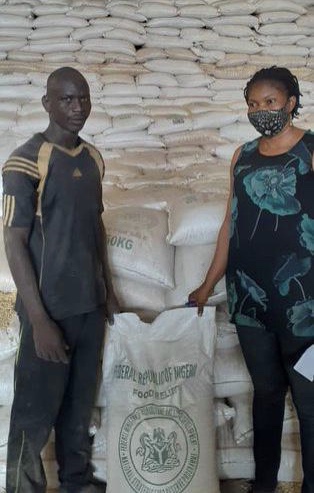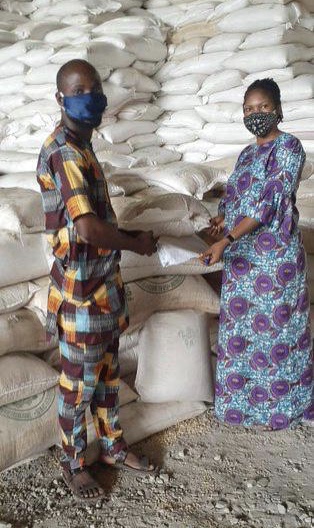
Lagos State Government has commenced the distribution of maize and sorghum to feed millers, farm settlements and other stakeholders in the livestock industry as mitigation measures to the COVID-19 pandemic, to boost agricultural production in the State and avert food scarcity in the coming years.
The State’s Acting Commissioner for Agriculture, Ms. Abisola Olusanya, who made this known over the weekend, noted that the injection of these ingredients into the feed mill industry would have a multiplier effect on the input and output of the feed millers and consequently on food production.

Olusanya explained that maize being the major source of energy in the feed mill industry, as well as accounting for between 60 and 70% of the total ingredients used in feed formation and production, usually determines the final cost of the finished feed such that any fluctuation in the market price of maize also has direct effects on the finished feed.
She explained that the country’s animal feed mill sector is undeveloped due to high production costs, stressing that the distribution of these ingredients to feed millers and farm settlements in the State would lead to a significant reduction in the production costs, increase of quality feeds and consequent availability of quality food to Lagosians.
In her words;
Nigeria’s animal feed sector remains underdeveloped, largely due to high production costs. 70% of the operational costs of most poultry, aquaculture and other livestock operations go to feeds. The animal feed sector at over $2 billion continues to attract significant local and foreign investment in large scale feed mill operations.
Olusanya averred that;
Recently, during the COVID-19 lockdown, the Federal Government of Nigeria presented the Lagos State Government with consignments of maize and sorghum; thus, the State Government approved the distribution of 3,300 Tonnes of Maize and 900 Tonnes of Sorghum to Feed Millers, Farm Estates and Settlements and other stakeholders in the animal feed industry across the State.
According to her, these feed millers include commercial feed millers, toll millers, ingredient sellers, distributors of finished feed and other stakeholders, as well as investors in the industry including the smallholder private livestock farmers such as the Sheep and Goat Farmers, and the Lagos Chapter of the Poultry Association of Nigeria, among others.
She gave the list of Farm Settlements and Estates that have benefited from the scheme to include the Ikorodu Farm Settlement, Odogunyan; Ajara Farm Settlement, Badagry; Araga Farm Settlement, Epe; Imota Farm Settlement, Ikorodu; Agbowa GFS/NDE Estate, Epe; Igboye Farm Settlement, Epe; Poultry Estates at Erikorodo, Ikorodu and Ayedoto in Ojo; Piggery Estates at Gberigbe, Ikorodu and Oke-Aro; Arable Crop Estate, Agbowa, Epe; Vegetable Estate, Yafm, Badagry; Fish Farm Estates at Odogunyan, Ikorodu and Ketu Ereyun in Epe.
Olusanya noted that the distribution would help the feed millers save time and money spent on searching for quality maize, shorten production time as well as reduce wastage of ingredients during production.
Olusanya asserted that;
Apart from ensuring that quality and affordable feed is produced, this distribution will also help our feed millers and other key actors in the animal feed industry to produce feed according to the recommended standard.
It is important to note that the overall aim here is to produce good quality feeds for our animals which will in effect help livestock and animal farmers to generate low mortalities, stimulate high productivity, produce a high rate of return on investments, produce quality food to Lagosians, sustain the industry’s integrity while encouraging more investors to support the animal feed industry.
The Acting Commissioner opined that the distribution is coming on the heels of the empowerment of 650 farmers in the State with maize seeds for the new planting season, adding that all these measures by the State Government were to cushion the effects of the COVID-19 pandemic and its threat to food security and availability in the State.
She, therefore, urged beneficiaries to make judicious use of these inputs to improve the animal feed industry, as it would go a long way in rearing healthy animals and in return produce quality food for Lagosians.


